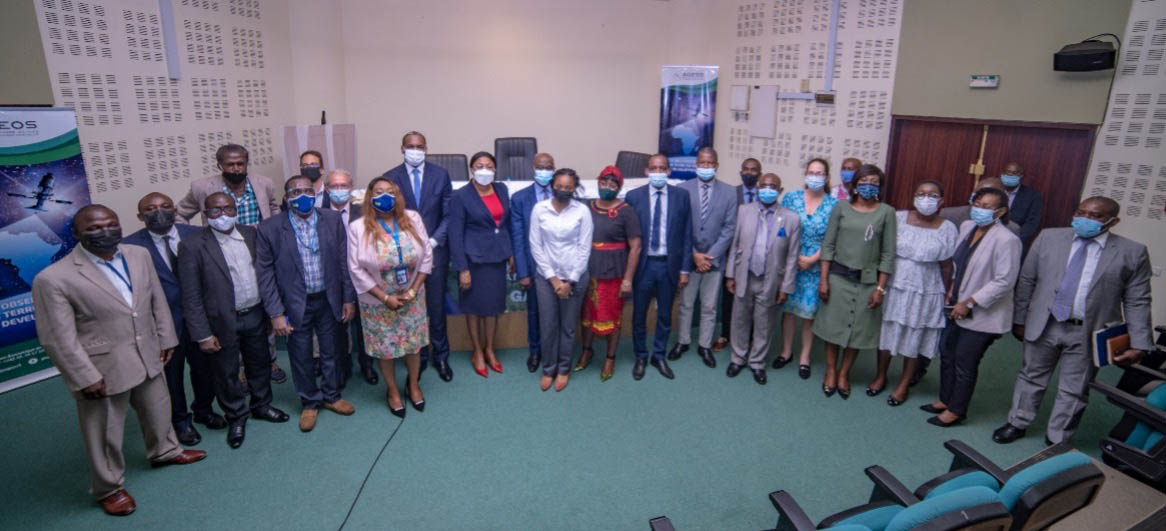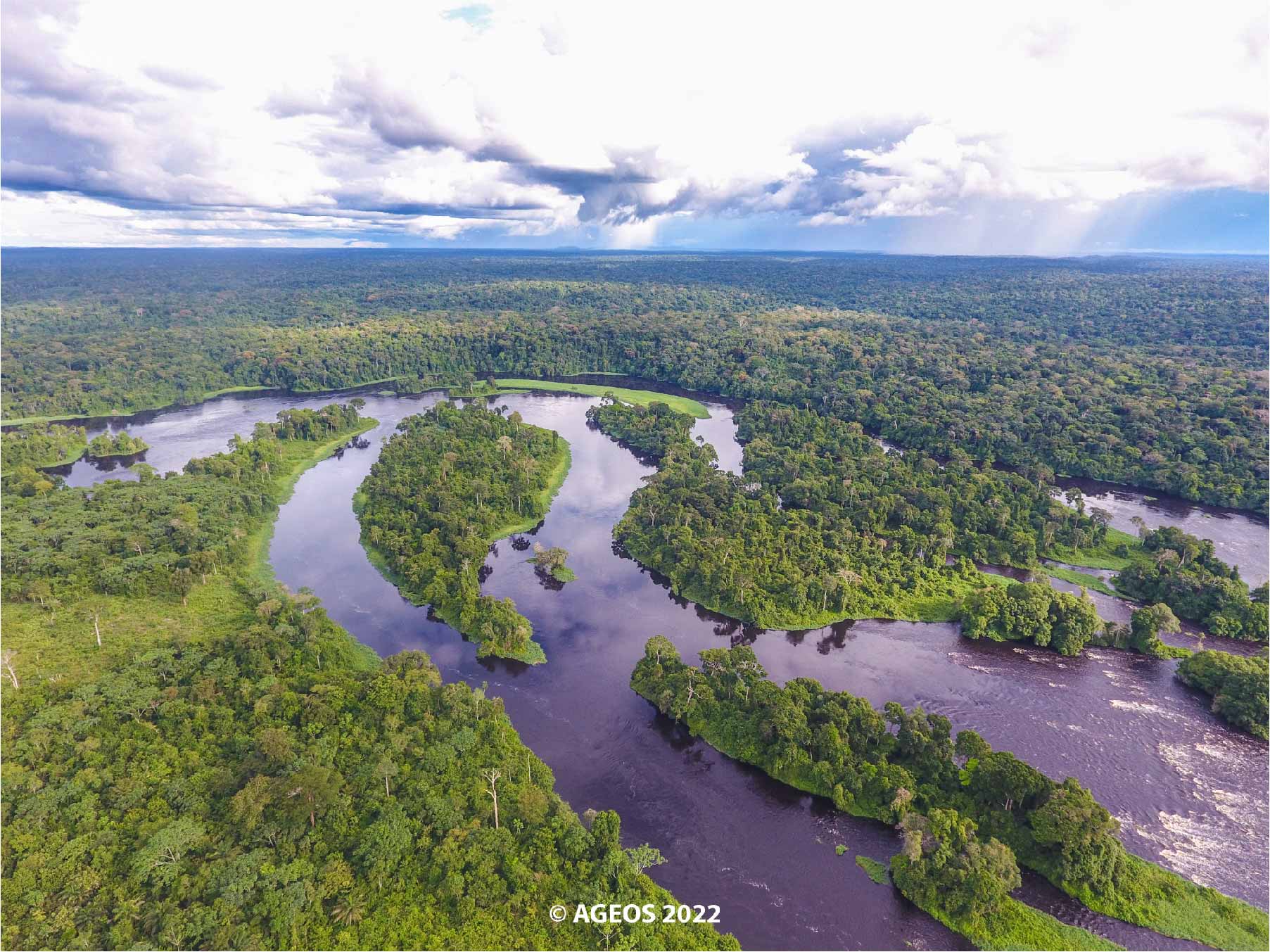SCO in Gabon
1 Context
As a signatory to the Statement of Common Interest in October 2019, Gabonese Agency for Space Studies and Observation (AGEOS) renewed its commitment to international SCO by signing the Founding Charter in June 2022. This membership is in line with Gabon's national climate policy to implement local actions against global climate change, reducing CO2 emissions and building resilience to the effects of climate disruption.
Indeed, thanks to its forest cover, which covers 88% of its territory, or 23 million hectares (AGEOS, 2020), Gabon stores significant carbon stocks, which contribute to climate change mitigation at the global level. According to the Intergovernmental Panel on Climate Change (IPCC), Gabon is one of the countries that are highly sensitive to the impacts of climate change. For this reason, and due to the will of political decision-makers, structures such as AGEOS are developing tools and acquiring satellite and in situ data to monitor natural resources. Alongside the Ministry of Water and Forests and the National Agency for National Parks, these initiatives benefit from a significant contribution from the world of research with universities and non-governmental organisations for concerted action in favour of sustainable environmental management.
AGEOS has already actively participated in the various steering committees and in the drafting of the currently validated SCO charter.
2 Implementation of SCO in Gabon
SCO in Gabon was launched through the organisation of a national workshop on 28 May 2021 in Libreville with the objectives of :
- Mobilise national partners around the interest and organisation of a national SCO,
- Start work on the Terms of Reference of SCO in Gabon, leading to a charter,
- Mobilising partners for the development of a Gabonese Mangrove Monitoring System project.
The added value of a Gabonese SCO initiative would be to :
- Initiate or promote local projects with themes related to monitoring, mitigation and adaptation to the effects of climate change;
- Stimulate local expertise in the field;
- Popularise and promote results, data, methods and tools;
- Provide knowledge and infrastructure for ;
- Raise awareness of the importance of Earth observation for climate action.
3 Actors and partners
Under the leadership of AGEOS, as a space agency, the SCO initiative in Gabon brings together local actors directly concerned by the fight against global warming and who confirmed their willingness to join during the launch workshop: The Ministry of Water and Forests, the National Agency for National Parks, the National Centre for Scientific and Technological Research (CENAREST), the laboratories of the Omar Bongo University and the National Institute of Agronomy and Biotechnology (INSAB) of the University of Science and Technology of Masuku, the High Commission for the Environment and the Living Environment, municipalities, environmental NGOs, and many others.

Workshop to launch SCO in Gabon on 28 May 2021 in Libreville. © AGEOS
4 News from SCO in Gabon
-
March 2024: SCO certification for the SUMAG project, a platform for mangrove monitoring and management in Gabon
-
03/06/2021 : 1st workshop of implementation
- 31/03/2021 : Gabon in starting blocks




